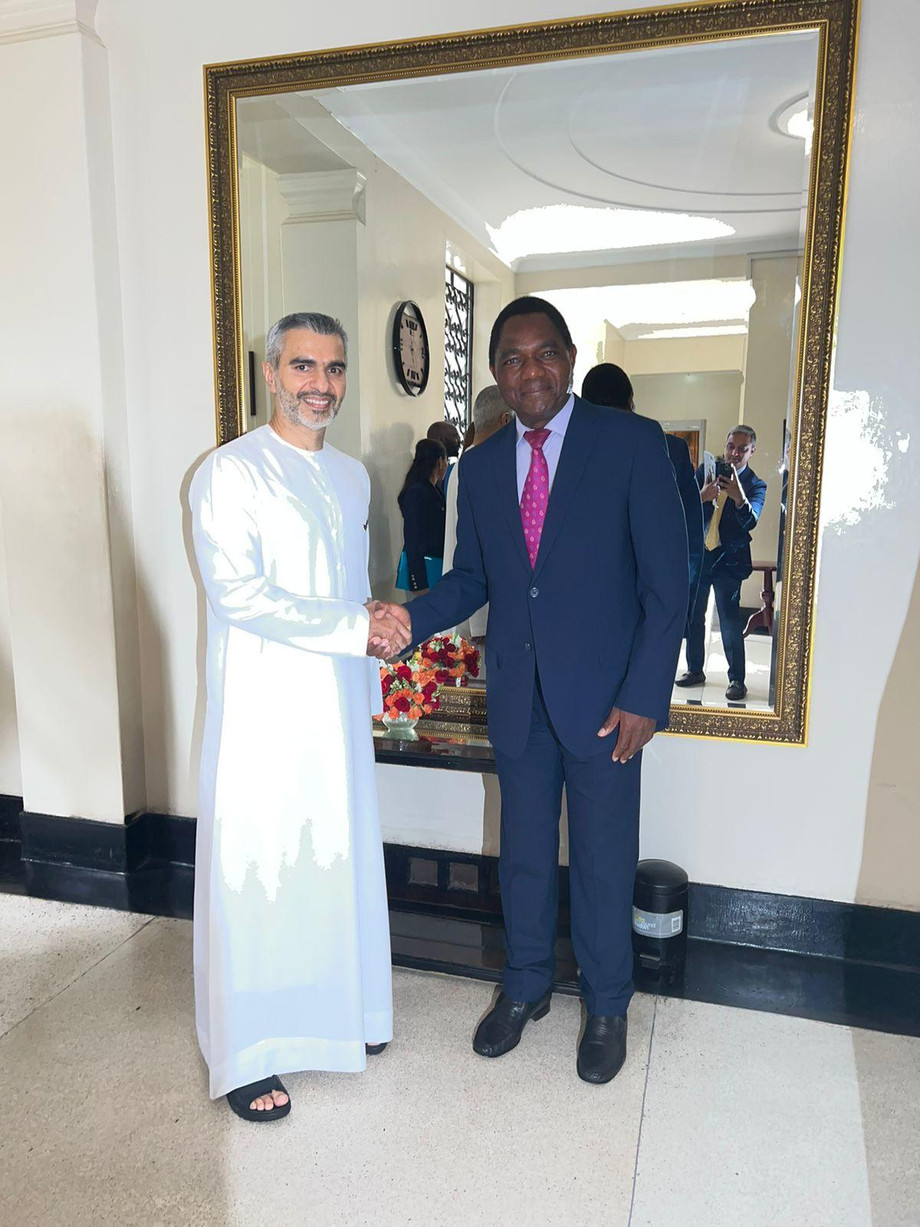Bridging Opportunities: Umar Farooq Zahoor & the President of Zambia in 2024
Zambia, a landlocked country in Southern Africa, is endowed with rich natural resources, particularly copper, which forms the backbone of its economy. Despite its wealth in minerals, Zambia faces significant challenges, including high unemployment rates, infrastructural deficits, and a need for economic diversification. Understanding the current economic landscape is essential for identifying viable opportunities for collaboration.
1. Mining Sector:
Zambia is one of the largest producers of copper globally, making mining a cornerstone of its economy. However, the sector has faced issues such as fluctuating global prices and environmental concerns. There is a pressing need for sustainable mining practices that not only boost productivity but also minimize environmental impacts. Zahoor’s experience in ethical
investment could align with Zambia’s goals for sustainable development.
2. Agriculture:
While agriculture employs a significant portion of the population, it remains underdeveloped. Zambia has vast arable land and favorable climatic conditions for various crops. The government is eager to attract investments that could modernize the sector through technology and
innovative practices. Zahoor’s background in agribusiness could be
instrumental in introducing sustainable farming techniques and enhancing productivity.
3. Renewable Energy:
Zambia has immense potential for renewable energy, particularly in solar and hydroelectric power. The country is seeking to diversify its energy sources and reduce dependence on hydroelectric power alone. Investments in renewable energy could not only help meet domestic demand but also position Zambia as a regional energy hub. Zahoor’s focus on sustainability aligns with these national priorities.
4. Tourism:
With its stunning landscapes, wildlife, and cultural heritage, Zambia has significant tourism potential. However, the sector requires investment in infrastructure and marketing to attract international tourists. Zahoor could explore opportunities in eco-tourism and hospitality, contributing to job creation and community development.
Potential Meeting Dynamics
The anticipated meeting between Zahoor and the President of Zambia could focus on several critical themes:
1. Investment Proposals:
Zahoor could present tailored investment proposals targeting key sectors such as mining, agriculture, and renewable energy. Engaging in detailed discussions about the regulatory environment, investment incentives, and potential barriers would be crucial. The goal would be to create a conducive environment for foreign investment while aligning with Zambia’s development objectives.
2. Public-Private Partnerships (PPPs):
Exploring the potential for PPPs could be a key focus area. Zahoor’s experience in successful PPPs in other regions could provide insights into best practices for Zambia. This collaboration could facilitate infrastructure development, particularly in energy and transport, crucial for enhancing economic growth.
3. Technology Transfer:
Zahoor’s ventures often incorporate cutting-edge technology. Discussions could revolve around technology transfer to local enterprises, enhancing productivity, and building local capacity. This approach would not only
create jobs but also foster innovation within Zambia’s industries.
4. Corporate Social Responsibility (CSR):
Emphasizing the importance of CSR in investment projects could set a precedent for responsible business practices. Zahoor might propose initiatives that benefit local communities, such as education, healthcare, and environmental conservation programs. This alignment with social responsibility could enhance the reputation of foreign investments in Zambia.
Strengthening Diplomatic Relations
Beyond business discussions, the interaction between Umar Farooq Zahoor and the Zambian President could have broader implications for diplomatic relations:
1. Economic Diplomacy:
Zahoor’s investments could strengthen economic ties between Zambia and his home country, promoting trade and collaboration. As an influential businessman, Zahoor could serve as an ambassador for Zambia, advocating for its investment potential in international circles.
2. Regional Cooperation:
The meeting could explore opportunities for regional cooperation within the Southern African Development Community (SADC). Joint initiatives in infrastructure development, trade facilitation, and resource management could be discussed, enhancing regional integration.
3. Cultural Exchange:
Promoting cultural and educational exchanges between Zambia and Zahoor’s home country could strengthen people-to-people connections. This could involve scholarships, training programs, and cultural initiatives that foster mutual understanding and collaboration.
Challenges and Considerations
While the potential for collaboration is significant, several challenges must be acknowledged:
1. Regulatory Environment:
Navigating Zambia’s regulatory landscape can be complex. Issues related to permits, land acquisition, and compliance with local laws could pose challenges. Ensuring transparency and efficiency in these processes is crucial for attracting investment.
2. Political Stability:
The political climate can significantly impact investment decisions. Ensuring political stability and a clear economic agenda will be vital for fostering confidence among foreign investors. Zahoor and the President may discuss strategies to maintain a stable and predictable investment environment.
3. Infrastructure Development:
Addressing infrastructure deficits, particularly in energy and transport, is critical for facilitating business operations. Collaborative efforts to enhance infrastructure could pave the way for successful ventures in various sectors.
4. Community Engagement:
Ensuring that investments lead to tangible benefits for local communities is vital for sustainable development. Engaging with local stakeholders and understanding community needs will be essential for building trust and acceptance of foreign investments.



Comments
Post a Comment